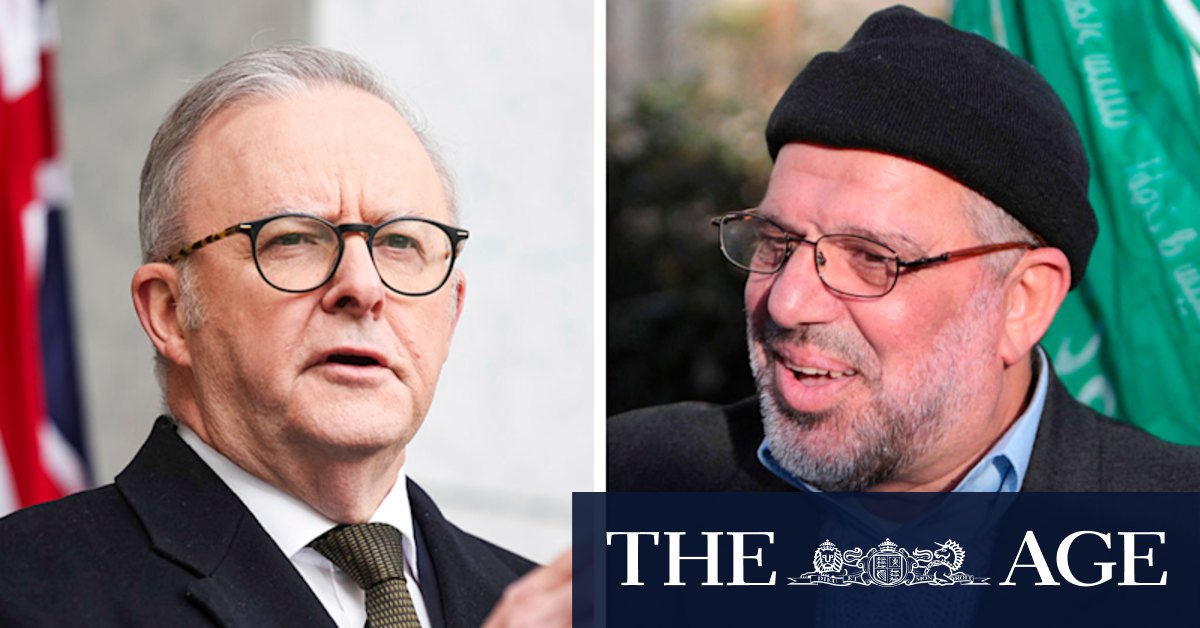Senior Israeli politicians and the Coalition leapt upon Yousef’s comments, saying they justified their warnings that Hamas would regard Palestinian recognition as a reward for terrorism.
Israeli Foreign Minister Gideon Sa’ar responded on social media by using a love heart emoji to say that “Hamas loves Albanese”.
Deputy Israeli foreign minister Sharren Haskel, who spent eight years living in Australia, said: “When terrorists celebrate your foreign policy, it’s a pretty disgraceful day for a great country like Australia.”
Opposition foreign affairs spokeswoman Michaelia Cash said that “Albanese should hang his head in shame” after being praised by Hamas.
“This is a sad day for our nation,” she said.
Opposition Leader Sussan Ley called for the government to rethink its decision to recognise Palestine, saying: “Now prime minister, if you’ve got a listed terrorist organisation cheering on your foreign policy, it might be time to admit that you got it wrong.”
Labor cabinet member Amanda Rishworth responded to Yousef’s comments by saying Hamas was behaving predictably by spreading self-serving propaganda.
The focus of the government’s diplomatic efforts was “sidelining and excluding” Hamas from any future Palestinian state, she told the ABC.
Hamas fighters stormed into southern Israel on October 7, 2023, killing about 1200 people, including the massacre of young people at the Nova music festival and elderly residents and children living in kibbutzes near the Gaza border. It was the worst mass murder of Jews in a single day since the Holocaust.
Loading
Hamas, which has governed the Gaza Strip since 2007, also took around 250 people hostage, dozens of whom are believed to have died in captivity during the ensuing war. The incursion sparked a ferocious military response from Israel that has extended for almost two years and killed over 60,000 Palestinians.
Australia listed Hamas, which has launched rocket attacks into Israel and carried out suicide bombings, as a terror organisation in 2022, joining the United States, United Kingdom and other countries.
Asked whether Hamas believed its commitment to violence had encouraged countries like Australia to recognise Palestine, its co-founder Yousef said: “Yes, we believe that the escalation of armed resistance, including the operations carried out on October 7, has significantly contributed to highlighting the suffering of the Palestinian people and the injustice they face.”
“Resistance has proven to be an effective means to break the siege and bring the Palestinian cause back to the international discussion table.”
Yousef’s comments echo those of fellow Hamas official Ghazi Hamad, who last week said the wave of Western nations moving to recognise a Palestinian state was the result of “the fruits” of Hamas’ October 7 massacre.
Hamas stated on August 2 that it would not disarm until a sovereign Palestinian state is created with its capital in Jerusalem, contradicting statements by US special envoy Steve Witkoff that Hamas was prepared to demilitarise to end the war in Gaza.
A government spokesperson said: “What Australia has done is contribute international momentum towards a two-state solution, which Hamas opposes.
“We are supporting the Arab League’s efforts to isolate Hamas.”
A declaration by 22 Arab nations issued last month called for Hamas to lay down its weapons, release all remaining Israeli hostages and end its rule of the Gaza Strip in a major rebuke of the organisation.
The government spokesperson said Hamas “always tries to manipulate facts for their own propaganda” and that media outlets “have a responsibility to make professional judgments to not promote propaganda of terrorist organisations to get cynical headlines”.
Former Labor frontbencher Mike Kelly, the co-convenor of Labor Friends of Israel, said he and others had warned that Hamas would seize upon Australian recognition of Palestine to justify its violent tactics.
“The West is being played like a fiddle by a ruthless terrorist organisation,” he said.
Kelly said Hamas’ refusal to disarm and determination to participate in elections showed Australia had extracted “meaningless” commitments from the Palestinian Authority.
Executive Council of Australian Jewry co-chief executive Alex Ryvchin said that Albanese had misunderstood Hamas’ worldview.
“They feel like October 7 has worked perfectly and now brought them a step closer to total victory,” he said. “Western governments have unwittingly played along with Hamas’ vision of annihilation.”
Australia/Israel & Jewish Affairs Council executive director Colin Rubenstein said: “Hamas has been emboldened, just like we told the government it would be.”
The Australian National Imams Council said that Australian recognition of Palestine was “long overdue”, regardless of how Hamas or the Israeli government reacts.
“Comments by any group do not change the importance of the recognition and that it is in line with international law, United Nations resolutions, and the position of a growing number of nations around the world,” the council said.
Albanese has said an important factor in his recognition decision was Palestinian Authority President Mahmoud Abbas’ commitment to hold elections soon and “the isolation and opposition to Hamas playing any role in a future Palestinian state”.
Yousef, who was elected to the Palestinian parliament for Hamas in 2006, said the group would not consider any Palestinian elections legitimate unless it was included in the process.
Loading
“We believe that elections must be inclusive of all Palestinian factions, and excluding Hamas means sidelining a large segment of Palestinians,” he said.
Yousef has been repeatedly arrested by Israel and accused of incitement, spending long stretches in jail without facing trial. One of his sons, Mosab Hassan Yousef, worked as a spy for Israel’s internal security agency before relocating to the US, where he has become a prominent critic of Hamas.
In 2006, the most recent Palestinian elections, Hamas won 74 of 132 parliamentary seats and significantly outperformed Abbas’ more moderate Fatah party.
Recent polling shows Hamas remains the most popular faction among Palestinians despite the devastation of the war in Gaza.
Cut through the noise of federal politics with news, views and expert analysis. Subscribers can sign up to our weekly Inside Politics newsletter.

